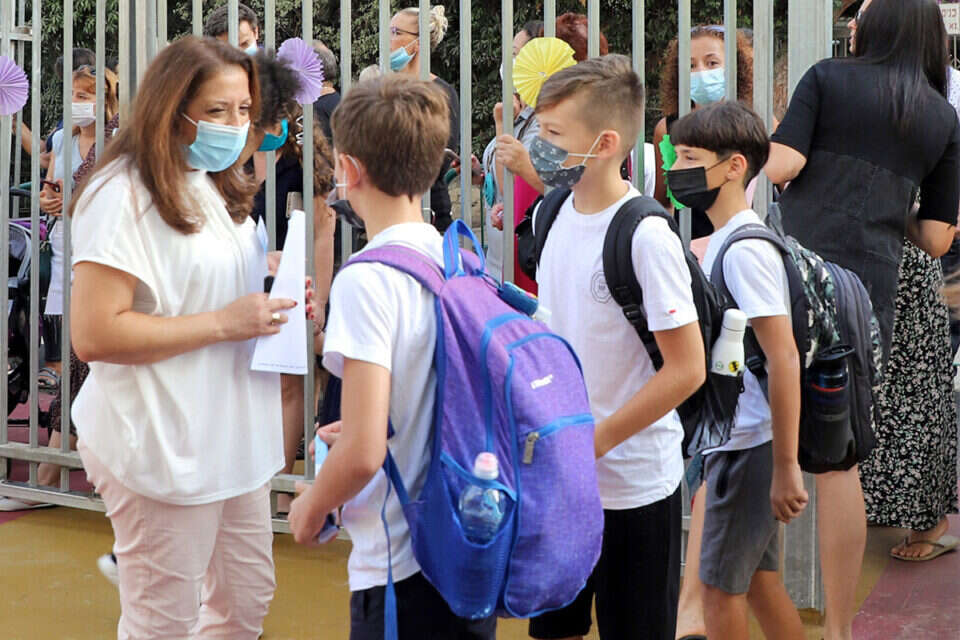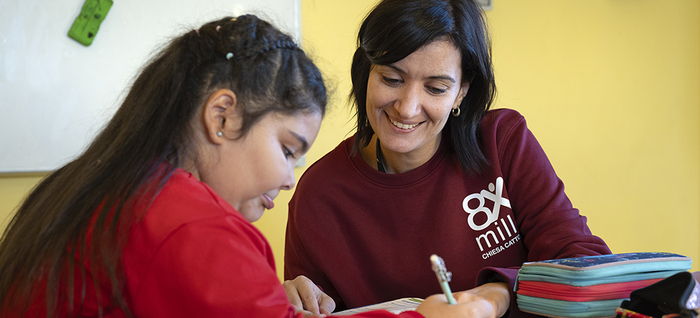Demand change:
Parents 'working hours have changed beyond recognition, students' academic and social needs have increased and municipalities and the Ministry of Education are spending billions on plans to extend the school year.
But the country is left behind - and instead of making schools the "second home" of students, the education system in Israel is built patch by patch.
From a school day that ends at 13:00, for lunch, private lessons, classes, sports groups and youth movements - each is scattered in a different place, with a different person in charge and a separate financial cost.
Even before the Minister of Education took office, a plan was prepared at the Ministry of Education to extend the school hours.
Among other things, it featured a model of morning school and evening school - that is, studies, enrichment classes and classes throughout the day.
The program examined the differential financial participation of parents, the state and the local authority.
The intention was to start the program among first and second grades and continue to all elementary grades, but the economic assessment made to the program caused it not to mature.
0_dkhqna57V59CRTQRsM
Shirley Rimon-Bracha, Director of the Education Administration at the Tel Aviv-Yafo Municipality: "A long school day, until 16:00 or 18:00, is one of the two life things the education system can do. It is support for equal opportunities for underprivileged populations, and it is an educational continuum. Even the more powerful populations. Today there are afternoons but only until the third grade, and no one asks what happens after. At noon and they will not go home to the screens, to boredom or to the street. "
"School - more study soup"
According to her, school is more than studies: "It is also a social and group structure, it is a source of emotional support for children, it is the second home. It is worth stopping to look at 'morning child and afternoon child', but on educational-emotional-social continuum. "The studies are so busy that teachers do not always have time to engage in skills, social skills, resilience. The more hours a child has in school, the more it will be possible to ventilate and introduce other critical components in learning."
She talks about what is happening in Tel Aviv-Yafo: "We have a long school day in elementary to third grade in the south of the city and in Jaffa. "An entire educational space: the possibility of connecting educational aspects to social and emotional aspects. For example, connecting a challenge in mathematics and a challenge of a climbing wall. When the educator believes in both challenges, it doubles strength and strengthens both learning and self-confidence."
Aside from the peace of mind for children and parents, such a change in the education system can dramatically reduce gaps between students from established homes and students from homes where both parents work and barely finish the month - or lack the ability and knowledge needed to help their children with homework.
Moreover, today not everyone can afford private lessons, hot meals and classes.
Minister of Education, Yifat Shasha-Bitton, Photo: Coco
Dr. Iris Ben-David Hadar, from the Faculty of Education at Bar-Ilan University: "In the past, there was a long school day in Israel.
Students even took part in home economics classes and prepared food themselves, but that was gone.
A school should become an educational home, not just learning subjects but providing the student with all the needs.
The absurdity is that there are localities where there is a kind of long school day, and these are actually strong localities where the parents pay a lot of money for additional hours. "
The gaps are breaking records
"The gaps in the education system are breaking records, and we are in the first and most dubious place among OECD countries. They are so high that the achievements of leading students are 2.3 times higher than those of the weak. We have crossed the line. "Also for the economy and society - and in the future this will lead to feelings of exclusion among weakened groups, who do not find themselves in Israeli society," she concluded.
This may sound like a grandiose plan that would require a doubling of the education system's budget, but it's not.
Israel has invested billions in the education system in recent years, and the budget this year is NIS 55 billion - part of the amount is intended for youth movements and programs to reduce disparities.
At the same time, a large proportion of parents pay for daycare, classes and TLN (another curriculum within school hours). This means that with the right routing of budgets it is possible to produce an efficient and functional model.
A student walks to school, Photo: Michael Giladi / Ginny
Shlomi Yeruham, chairman of the parents' leadership in Ma'ale Adumim: "The corona has changed and taught us things, and it is time for the education system in Israel to progress and become more efficient, as in Europe.
Beyond five long school days, which contain everything - homework preparation, private lessons, classes, feeding, youth movements and more, will help parents financially and prevent social and educational gaps.
"Parents go to work, which ends at 17:00 at the earliest, which requires them to pay for lunch or a babysitter to take them out of school. "There is no economic possibility for all of these, and then big gaps are created. It's time to make real change, even if it seems impossible."









